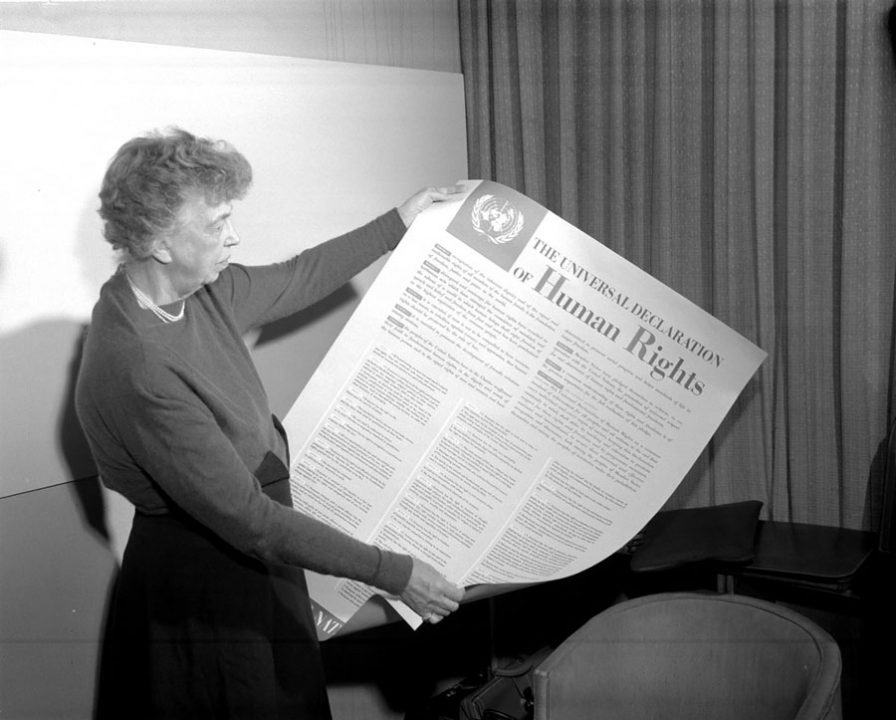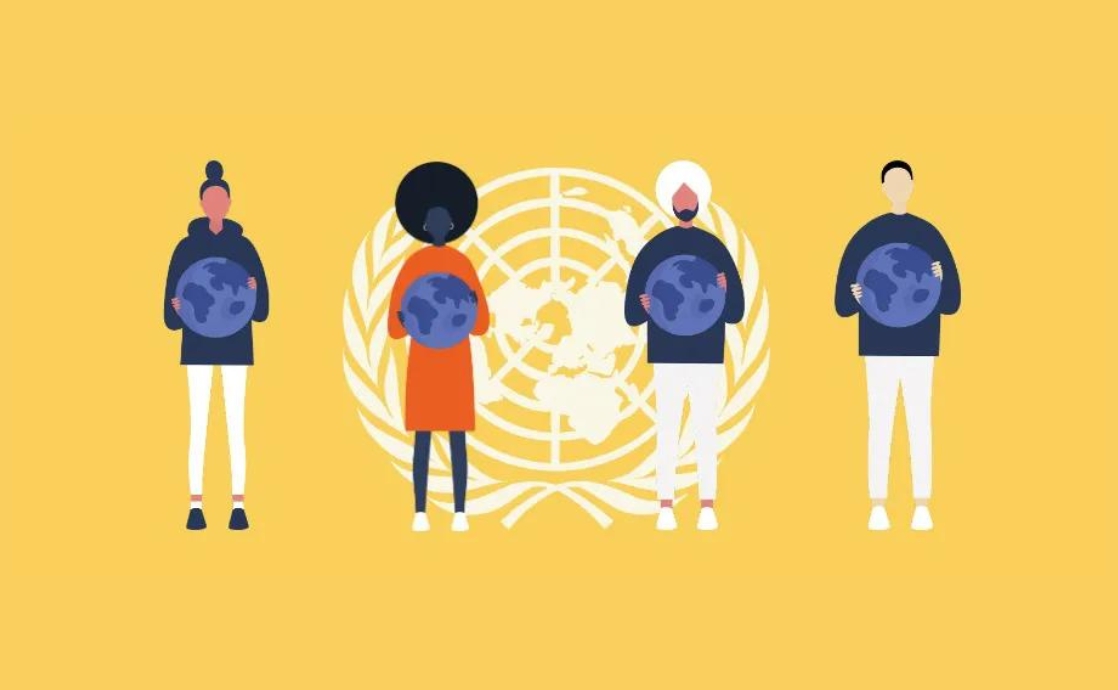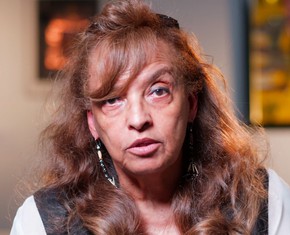The views expressed in our content reflect individual perspectives and do not represent the authoritative views of the Baha'i Faith.
Today, December 10, the world celebrates human rights – and on International Human Rights Day, it makes sense to consider a time, not so long ago, before human rights even existed.
Historians tell us that the whole idea of human rights represents a fairly recent development in our history. Some trace it back to Thomas Paine or John Stuart Mill, the storied philosophers of liberty whose work led to this statement:
We hold these truths to be self-evident, that all men are created equal, that they are endowed by their Creator with certain unalienable Rights, that among these are Life, Liberty and the pursuit of Happiness. – United States Declaration of Independence, 1776.
Unfortunately, the 1776 American Declaration of Independence, as well as the French Déclaration des droits de l’homme et du citoyen de 1789 (The Declaration of the Rights of Man and of the Citizen of 1789) both expressed laudable sentiments for the time, but also excluded women, people of color and those who owned no land from their declarations – and neither one even attempted to prohibit slavery.
Not until the Universal Declaration of Human Rights (UDHR) did any significant governmental body put forth a true legal doctrine that established the inherent rights of every actual human:
All human beings are born free and equal in dignity and rights. They are endowed with reason and conscience and should act towards one another in a spirit of brotherhood. – The Universal Declaration of Human Rights, Article 1.

So the 10th of December 1948, just 71 years ago, marks the real beginning point of modern, codified human rights. According to the preamble of the UDHR, the nations of the United Nations agreed that global human rights should henceforth be enshrined in and protected by the rule of law:
Whereas disregard and contempt for human rights have resulted in barbarous acts which have outraged the conscience of mankind, and the advent of a world in which human beings shall enjoy freedom of speech and belief and freedom from fear and want has been proclaimed the highest aspiration of the common people …. – Ibid.
That seminal document recognized the basic human rights of all people everywhere and upheld the nobility and worth of every person, requiring its member states to enact and promote:
Universal respect for, and observance of, human rights and fundamental freedoms for all without distinction as to race, sex, language, or religion. – Ibid., Preamble; Article 55.
Where did these noble concepts come from? How did they originate? Who first declared and spread them?
The noble idea of ensuring human rights for all emerged from many places and people, but its first actual declaration in law came in the writings of Baha’u’llah during the mid-19th century – which means that the promulgation of the UDHR brought into being some of the basic premises and principles of the Baha’i Faith. In fact, it fulfilled a primary goal of Baha’u’llah’s teachings, expressed here by Abdu’l-Baha in a 1912 speech he gave in Philadelphia:
Baha’u’llah taught that an equal standard of human rights must be recognized and adopted. In the estimation of God all men are equal; there is no distinction or preferment for any soul in the dominion of His justice and equity. – Abdu’l-Baha, The Promulgation of Universal Peace, p. 181.
Baha’is believe that the central message of their Faith – the oneness of humanity – formed the main impetus in today’s world for the adoption of a universal standard of human rights. We certainly haven’t achieved that standard yet, because so many of the world’s societies and governments regularly violate the basic human rights of their people – but Baha’u’llah, the prophet and founder of the Baha’i Faith, wrote that a recognition of world unity and human oneness would ultimately lead humanity to true liberty:
From the heaven of God’s Will, and for the purpose of ennobling the world of being and of elevating the minds and souls of men, hath been sent down that which is the most effective instrument for the education of the whole human race. … It is not his to boast who loveth his country, but it is his who loveth the world. …
The summons and the message which We gave were never intended to reach or to benefit one land or one people only. Mankind in its entirety must firmly adhere to whatsoever hath been revealed and vouchsafed unto it. Then and only then will it attain unto true liberty. – Baha’u’llah, Gleanings from the Writings of Baha’u’llah, pp. 95-96.
Perhaps that explains why comparing the source, the intent and even the language of the Baha’i teachings to the Universal Declaration of Human Rights gives careful readers a sense of coherence and commonality:
Whereas disregard and contempt for human rights have resulted in barbarous acts which have outraged the conscience of mankind, and the advent of a world in which human beings shall enjoy freedom of speech and belief and freedom from fear and want has been proclaimed the highest aspiration of the common people …. – Ibid., Preamble.
… the world of humanity is one race, the surface of the earth one place of residence and … these imaginary racial barriers and political boundaries are without right or foundation. Man is degraded in becoming the captive of his own illusions and suppositions. The earth is one earth, and the same atmosphere surrounds it. No difference or preference has been made by God for its human inhabitants; but man has laid the foundation of prejudice, hatred and discord with his fellowman by considering nationalities separate in importance and races different in rights and privileges. – Abdu’l-Baha, The Promulgation of Universal Peace, p. 232.
Every December 10, the world observes International Human Rights Day to celebrate the signing of the Universal Declaration of Human Rights and the promotion of human freedom everywhere. Baha’is wholeheartedly take part in those global celebrations, believing that Baha’u’llah’s revelation has brought these freedoms to us all:
The spirit of liberty which in recent decades has swept over the planet with such tempestuous force is a manifestation of the vibrancy of the Revelation brought by Baha’u’llah. His own words confirm it. …
Might it not be reasonably concluded, then, that “true liberty” is His gift of love to the human race? Consider what Baha’u’llah has done: He revealed laws and principles to guide the free, He established an Order to channel the actions of the free, He proclaimed a Covenant to guarantee the unity of the free.
Thus, we hold to this ultimate perspective: Baha’u’llah came to set humanity free. His Revelation is, indeed, an invitation to freedom – freedom from want, freedom from war, freedom to unite, freedom to progress, freedom in peace and joy. – 1986 Message to the American Baha’i Community from The Universal House of Justice.
















Comments
Sign in or create an account
Continue with Googleor